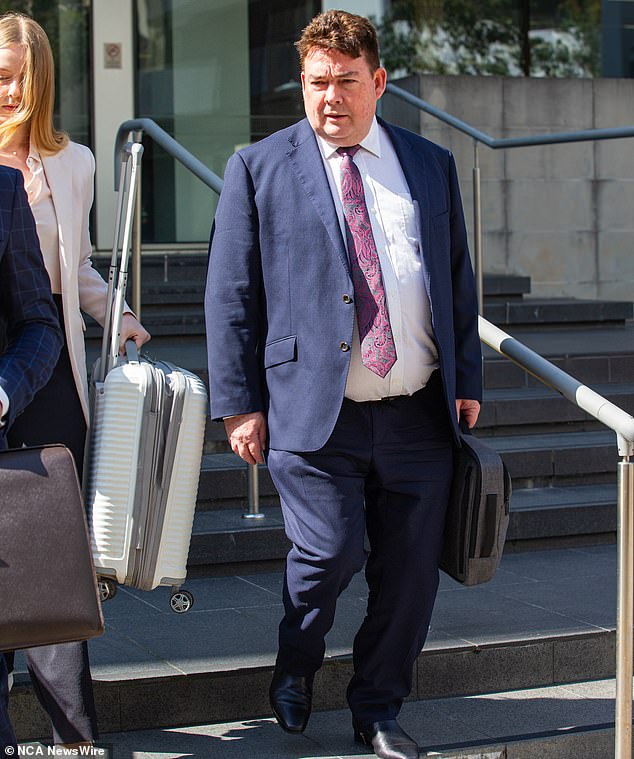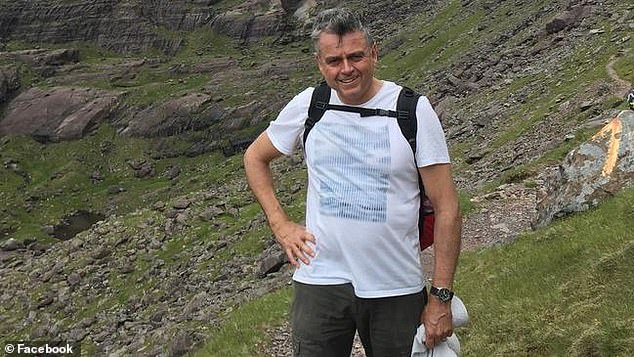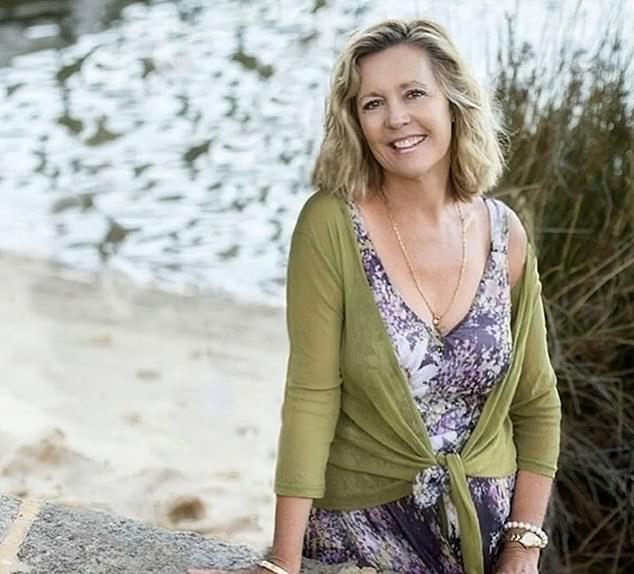Doctor of a woman allegedly murdered by her crypto influencer son reveals ‘suspicious’ discovery he made on the day she died
The doctor of a mother allegedly murdered by her son for money has told the WA Supreme Court he found it “somewhat suspicious” that a box containing her medication was missing on the day she died, a court has heard.
Dr. Niall Barrett was cross-examined in the murder trial of Andre Zachary Rebelo, who is accused of killing his mother Colleen Rebelo to make money from life insurance policies he took out on her the week before her death.
Rebelo has pleaded not guilty to the murder charge.
His lawyer Anthony Elliott questioned the doctor about a missing box of Ms Rebelo’s medication.
She had been prescribed 125 micrograms of thyroxine medication to treat hypothyroidism, but police seized only a box containing 75 micrograms from her home on the day she died.
Under questioning, Dr. Barrett told the court that if a person had stopped taking medications to treat hypothyroidism, it would take about ten years for him or her to die.
‘If you had not taken the medication from the day she was prescribed the tablets you would not have caused her death. It would have taken 10 years to kill her,” Dr. Barrett said.
‘I don’t think you should tell people that it is a very critical dose.
Andre Zachary Rebelo (pictured with ex Gracie Piscopo) is accused of killing his mother to make money from life insurance policies he took out on her days before she died

Defense attorney Anthony Elliott questioned the doctor about a missing box of Colleen Rebelo’s medications. Photo: NewsWire / Ross Swanborough
“I want to make sure it’s clear to everyone.”
Dr. Barrett told the lawyer it was an exaggeration to say it was strange that a box of 50 microgram tablets had not been found in Ms Rebelo’s refrigerator.
He said there could be many explanations as to why the drug was not found at her home on the day she died, but felt the absence of the box was “somewhat suspicious” because of who Ms Rebelo was.
“The last time I spoke to her, she brought (youngest son) Fabian in with his diabetes, said she had completed her master’s degree in health and had gotten a position in health care administration,” Dr. Barrett said.
‘She was very happy then.
“I think she was in a more positive frame of mind than when I last saw her, she hadn’t completed her studies and didn’t have a good job.”
A day earlier on Tuesday, the jury heard Ms Rebelo had no serious health problems that would have shortened her life when she was found dead at her Bicton home four years earlier.
Dr. Barrett said his patient was a fit and healthy 58-year-old woman, but had three health problems that were being treated with medications: an underactive thyroid, osteopenia and gastritis.
“I don’t think anything was ignored,” he said.
Dr. Barrett told the court that Ms Rebelo also saw him given a mental health plan and a referral to a psychologist, and that he diagnosed her with generalized anxiety disorder.

Colleen Rebelo’s GP, Dr Niall Dermott Barrett, told the WA Supreme Court he found it “somewhat suspicious” that a box containing his patient’s medication was missing.
He said his patient’s anxiety was caused by the failure of her marriage and the stress of having to support four children on her own.
He said she was also completing a master’s degree and working at the time.
‘She set high standards for herself; I don’t think she was anything but prescient at any point,” Dr. Barrett said.
‘She had a great relationship with her children, but didn’t feel like she had much support from friends or family.’
Endocrinologist Timothy Welborn told the court that Ms Rebelo did not die of thyroid disease.
Dr. Welborn was called as an expert witness in the trial and told the court that you did not die from Hashimoto’s unless you had the condition untreated for ten to fifteen years.
The specialist with 60 years of experience in the field told the court that Ms Rebelo had suffered from the condition for 22 years and as far as he knew had not experienced many problems.
‘She was probably a bit forgetful at times, but took regular blood tests. These were slightly abnormal but not hugely abnormal. She finally got it right on March 3, 2020,” he said.

Colleen Rebelo (pictured) was a fit and healthy woman when she died in 2020, court heard this week
‘As far as I know she was quite normal on the day she died.
“If she had stopped taking the medication, it would have been quite obvious to her friends and family.”
Dr. Welborn told the court there was no risk if someone took their medication and didn’t take it the next day.
He said there was a marginal study from Korea that talked about an increased risk of death in people with thyroid disease, but this had not been reconfirmed.
He said this showed there was a slight increase from 1 to 1.25 in 1,000 people who could die from sudden death.
“A slight increase in risk that is not meaningful,” he said.
Dr. Welborn said he was confident Ms Rebelo had a healthy heart and it was “highly unlikely” she died of a sudden death.
“There is a low statistical probability, I can’t say for sure that she did not die of sudden death, but it is very unlikely,” he said.

Andre Zachary Rebelo, who has a child with model Gracie Piscopo, has been charged with murdering his mother in May 2020 to make money from life insurance policies he took out on her a week before her death.
Ms Rebelo’s son Andre Zachary Rebelo is on trial in the WA Supreme Court for her murder. He has denied being guilty of the charges.
Last week the court was told that Mr Rebelo had taken out three life insurance policies against her in the week before her death.
Days after Mrs. Rebelo passed away, Mr. Rebelo initiated the claims process to access the insurance premiums.
The court was told he had submitted forged documents to one of the insurers, including false medical information about his mother, a coroner’s report and her last will.
He pleaded guilty to four counts of fraud relating to the forged documents.
Ms Rebelo’s cause of death has never been determined.
The court was told her death was unexpected but was not treated as suspicious by first responders who were called to Ms Rebelo’s home when she died.
One of the insurers reported the incident to the police because he suspected fraud.
The process continues.
